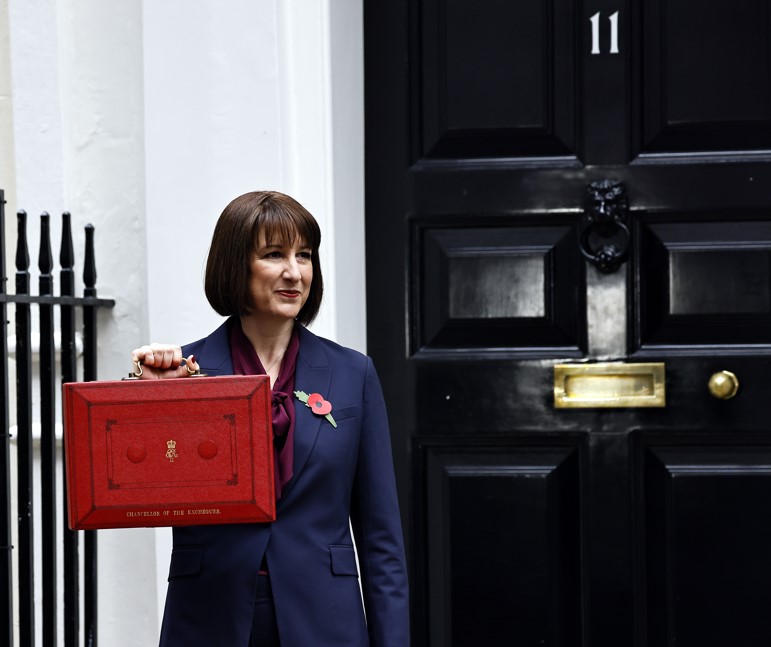A sombre but content packed budget was delivered by the chancellor, Rachel Reeves, to the House of Commons on 30 October 2024. Despite there being a welcome lack of joviality and banter, there was plenty of finger pointing as the Chancellor looked to frame the forthcoming budget as a necessary evil to help right the wrongs of her Conservative predecessors, including the £22bn ‘black-hole’ that she claims to have inherited.
Summarised below are some of the key changes, but a full breakdown of all the tax legislation and rates announced yesterday can be found here.
Employment (and Self-Employment) Taxes
- Changes to Employers’ National Insurance Contributions (NIC’s) were the headline grabber for this autumn’s budget, taking effect from 6th April 2025. The employer rate (Class 1 secondary) will increase to 15% from 13.8%. In addition, the point at which employer NIC’s kick-in has been reduced from £9,100 to a mere £5,000. Employers, however, will benefit from an increase in employment allowance, which will climb to £10,500 from £5,000. This is a move that will benefit small businesses in particular, and take some, if not all, of the sting out of the tail of these other changes.
- Income Tax was unaffected by this budget, as was widely expected. The personal allowance (£12,570) and higher rate threshold (£50,270) will, however, remain static until April 2028, at which point we can expect to see inflationary rises again.
- Employees’ NIC’s were untouched, however, as with income tax, these thresholds won’t change again until April 2028. The same applies to Class 4 NIC’s for the self-employed.
Capital Gains Tax
- Capital Gains Tax (CGT), widely feared to be heavily impacted by this budget, saw a significant but not radical shift. With immediate effect, the lower rate of CGT has increased from 10% to 18%, with the higher rate moving from 20% to 24%, both now aligning with CGT rates charged on the sale of residential property, which remains unchanged.
- The rates for Business Asset Disposal Relief (BADR) and Investors Relief (IR) will increase from 10% to 16% from 6th April 2025, and again to 18% from 6th April 2026. The lifetime limit for IR will also be reduced to £1m for all qualifying disposals made after 30 October 2024.
Inheritance Tax
- There is no change to the main IHT rate, but the freeze on IHT thresholds, both the main rate threshold (£325,000) and the nil rate band (175,000), along with its £2m taper threshold, have been extended from April 2028 to April 2030.
- A new £1m combined limit will apply from 6th April 2026 to Business Property Relief (BPR) and Agricultural Property Relief (APR). From that date onwards, individuals will only qualify for 100% BPR or APR up to this combined limit (for both reliefs) of £1m. Once this limit has been reached, a reduced rate of 50% applies.
- From 6th April 2026, AIM shares and other similar shares ‘not listed’ on a recognised stock exchange, will attract BPR at a reduced rate of 50%, as opposed to the current rate of 100% that they enjoy.
- The majority of unused pension funds will be chargeable to IHT from 6th April 2027, with the associated IHT being administered and paid from the fund itself.
Business Taxes
- There is no change to the 25% main rate of corporation tax or to the 19% small profits rate.
- Tax on Dividends likewise saw no change, with current rates and allowances applying again in 2025/26.
- The proposed abolition of the Furnished Holiday Letting (FHL) rules will go ahead from April 2025.
Other Taxes and Announcements
- The Stamp Duty Land Tax (SDLT) surcharge for additional dwellings (second homes) will increase from 3% to 5%, with immediate effect.
- Minimum Wage sees significant increases, with the following rate increases coming into effect from 1 April 2025. Over 20’s to £12.21 (from £11.44), 18-20yrs to £10 (from £8.60) and under 18’s / apprentices to £7.55 (from £6.40).
- Proposals to base the High Income Child Benefit Charge (HICBC) on household incomes have been scrapped. That said, the threshold at which the HICBC applies remains at £60,000, with full repayment taking place for incomes exceeding £80,000.
- Double cab pickups will no longer be accepted as vans, following multiple changes to this ruling. Transitional arrangements will apply for those purchased before 6th April 2025.
- The proposed application chargeability to VAT (at 20%) on private school fees will go ahead, with effect from 1st January 2025.
- Making Tax Digital (MTD) for Income Tax will be extended to sole traders and landlords with income exceeding £20,000 before 2029. Currently, MTD for income tax will begin from April 2026 for sole traders and landlord with income exceeding £50,000, and from April 2027 for those with income exceeding £30,000.
- HMRC will charge an additional 1.5% in Interest on unpaid tax liabilities from 6th April



